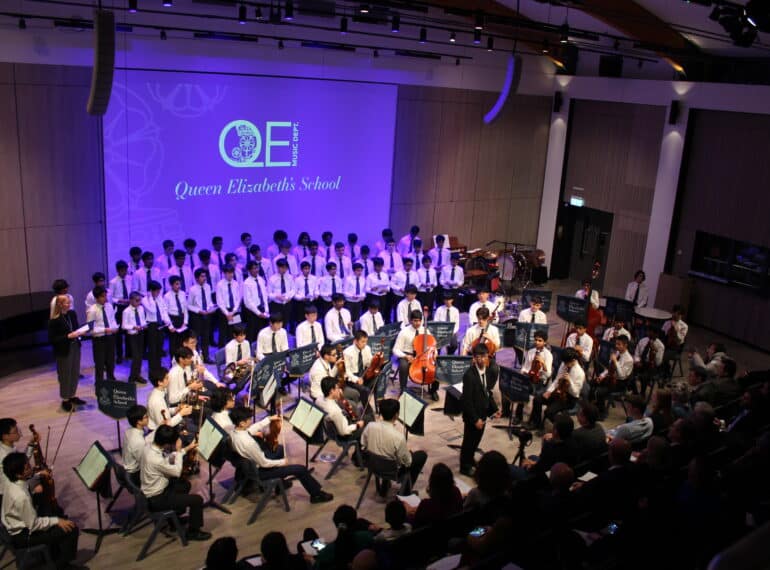
A Sixth Form musician’s composition is to be performed at the world’s longest-running music festival, after he won a place on a highly regarded programme for young composers.
 Harrison Lee’s piece, Ego Flos Campi, will be sung by the acclaimed ORA Singers amid the medieval magnificence of Worcester Cathedral as part of the famous Three Choirs Festival.
Harrison Lee’s piece, Ego Flos Campi, will be sung by the acclaimed ORA Singers amid the medieval magnificence of Worcester Cathedral as part of the famous Three Choirs Festival.
The A-level Music student was one of only ten successful applicants to have secured a place on the ORA Singers Young Composers scheme.
Director of Music Ruth Partington said: “We are thrilled that Harrison gained a place on this prestigious scheme, and that all the hard work he puts into his composition has been rewarded.
“We have already performed one piece by Harrison this academic year and look forward to the next one!”
Ego Flos Campi will be heard at a showcase concert on 2nd August 2024 held as part of the festival, which rotates between the cathedral cities of Hereford, Worcester and Gloucester. The title of the piece is taken from the Latin first words of the Song of Solomon in the Bible, meaning ‘I am a flower of the field’.
As part of the programme, and in preparation for the concert, Harrison has been receiving ten hours of mentoring from Kemal Yusuf, a young British composer who has composed more than 150 works for various ensembles, films, dance productions, and solo performances.
Harrison’s piece has already been the subject of a workshop by the ORA Singers, with guest composer Oliver Tarney, best known for his work with filmmakers Ridley Scott and Paul Greengrass. The award-winning vocal ensemble, which is also a world-leading commissioner of choral music, is directed by Suzi Digby, Baroness Eatwell OBE, who is a choral conductor, music educator and visiting professor at the University of Southern California.
After the concert, each of the ten successful young composers will receive detailed feedback from the panel, along with a video-recording of their piece, which is provided for them to use to kick-start their musical portfolios. The concert will also feature a prize-giving ceremony.
Harrison, who is in Year 12, said: “It’s such a great opportunity to be working with singers of this calibre, and I think it has helped me to develop my composition skills a lot more. I have learned a lot from this programme and it will definitely help me with my ambitions of being a composer.”
Last term, his Magnificat was one of the highlights of QE’s Chamber, Choral and Composition Concert. Performed by a full orchestra and the Chamber Choir, and conducted by Harrison himself, it filled the The Friends’ Recital Hall with sound (pictured top).
Having previously won Senior Music Colours, Harrison this year had a bar added to those colours for his exceptional contribution to music at the School: Headmaster Neil Enright presented it to him in March. Harrison was also the winner of this year’s Music (academic) prize for Year 12 at the School’s Senior Awards ceremony.

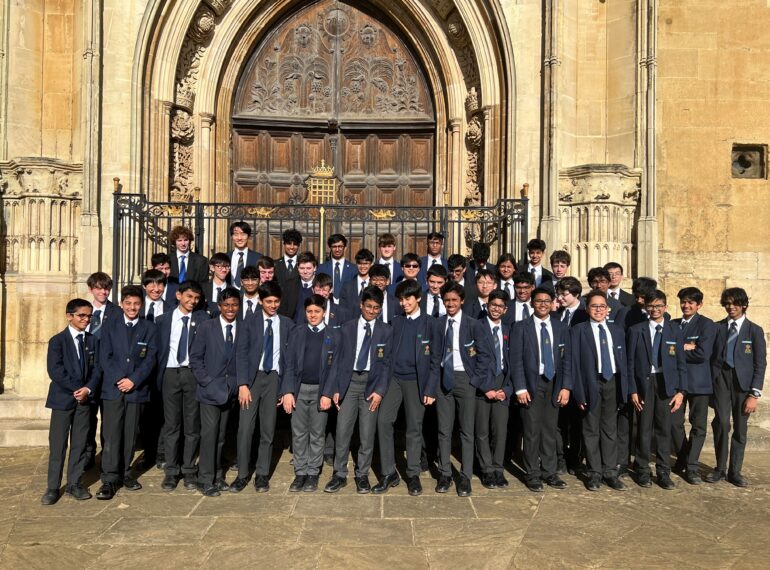
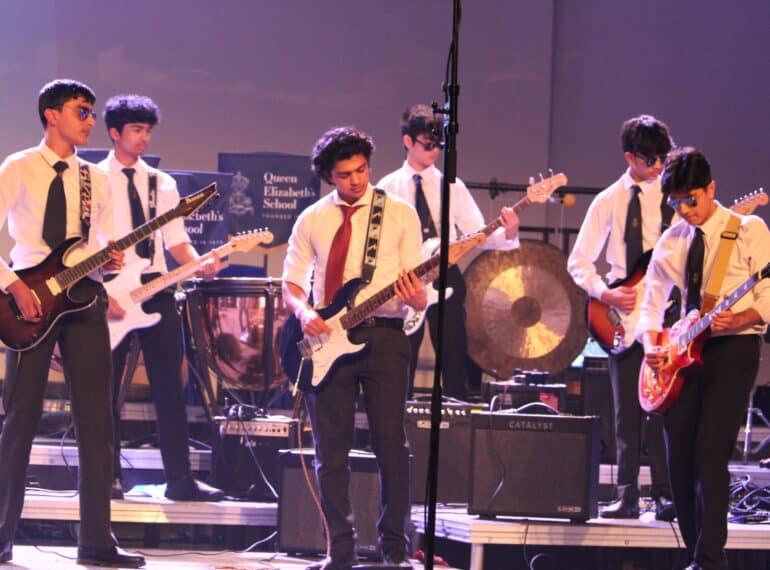
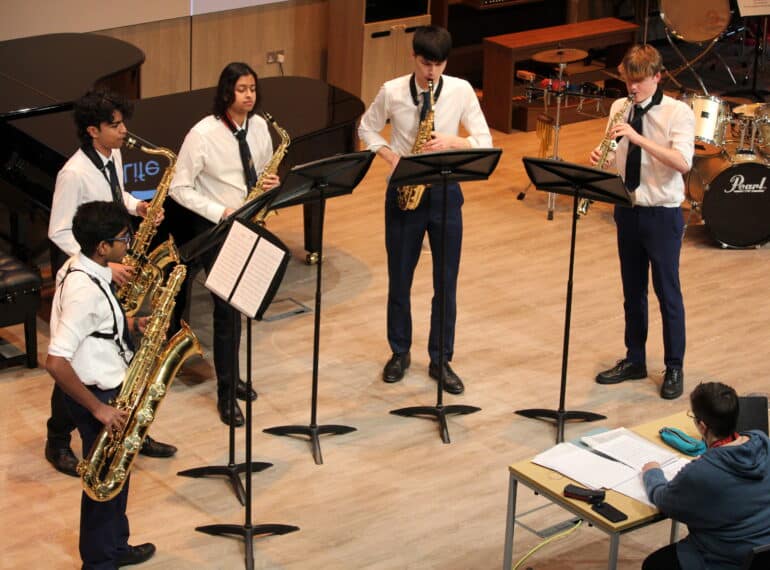
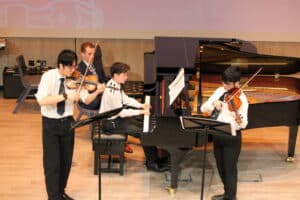 The two groups – both in the U19 category – had been among no fewer than 12 QE ensembles to have reached the semi-finals of the 2024 Pro Corda Festival.
The two groups – both in the U19 category – had been among no fewer than 12 QE ensembles to have reached the semi-finals of the 2024 Pro Corda Festival.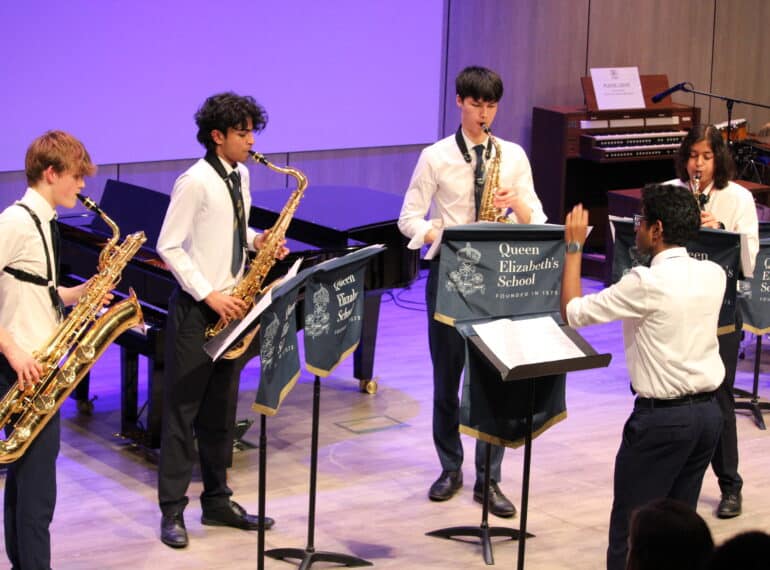
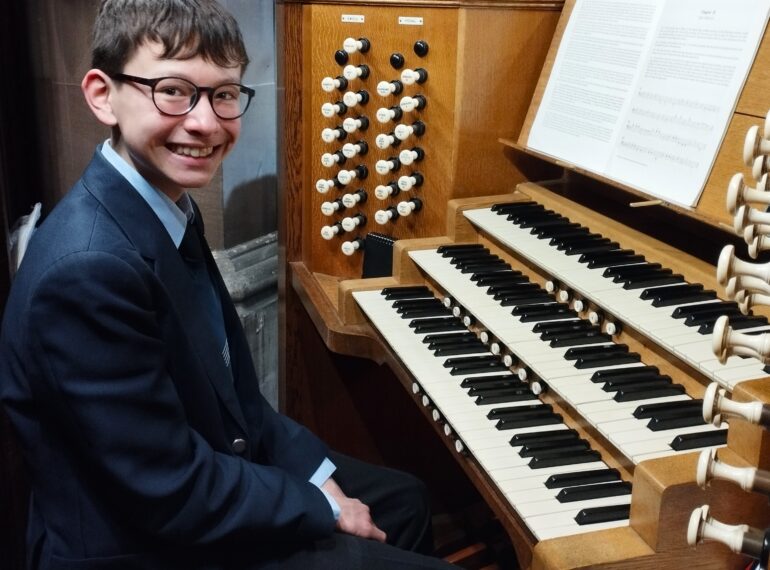
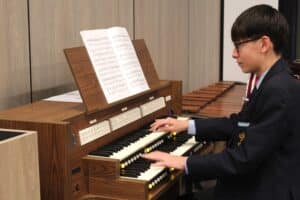 “Joel and Noah are a credit to Queen Elizabeth’s School. They are passionate about music, they engage with their fellows in the choir and organ loft, and they display considerable talent and potential as organists. Everyone I have spoken to in the church, both those who frequent the loft, and those who sit in the pews, speak very highly of both boys, who have made the scholarship programme a delight to run.”
“Joel and Noah are a credit to Queen Elizabeth’s School. They are passionate about music, they engage with their fellows in the choir and organ loft, and they display considerable talent and potential as organists. Everyone I have spoken to in the church, both those who frequent the loft, and those who sit in the pews, speak very highly of both boys, who have made the scholarship programme a delight to run.”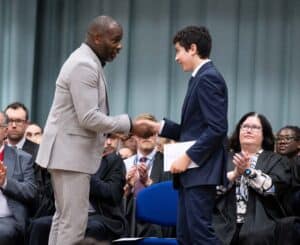 Joel said: “It’s been really useful having the electric organ to practise on, as unlike with other instruments, it is usually a very difficult instrument to practise, so this has helped me get in significantly more practice time.”
Joel said: “It’s been really useful having the electric organ to practise on, as unlike with other instruments, it is usually a very difficult instrument to practise, so this has helped me get in significantly more practice time.”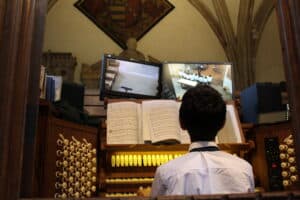 The School is taking active steps to inspire boys to take up the organ. Peripatetic teacher Adam Hope has been teaching the instrument to Noah and Zach, who both passed grade 3 with distinction in a year.
The School is taking active steps to inspire boys to take up the organ. Peripatetic teacher Adam Hope has been teaching the instrument to Noah and Zach, who both passed grade 3 with distinction in a year.